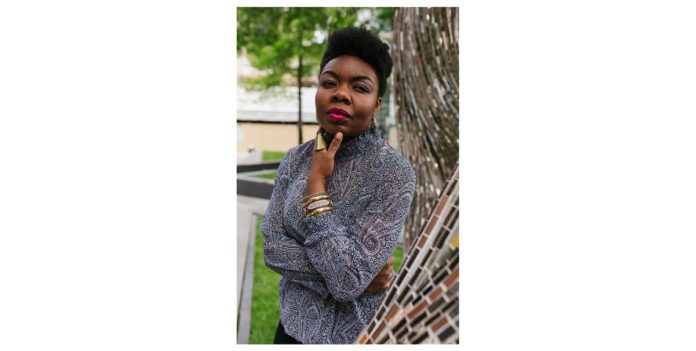We spoke to Nigerian born, London based poet, educator and lawyer Tolu Agbelusi who will be gracing the virtual stage at the Poetry Africa festival.
What does it mean to be a part of the Festival, especially as it will be entirely online this year?
For years, I have watched Poetry Africa videos online and wanted to be on that stage that has hosted many poets I respect. I’m honoured and looking forward to being part of the festival. I do wish I was in Durban. But I am glad more people will have the opportunity to watch it live. I’ll just have to save the trip for another day.
Read more: “I’ve seen black men fight for white women in a way that they don’t fight for black women”
Tell me about how you got into poetry.
I was writing poetry before I knew that was what I was writing. It certainly was long before I called myself a poet. At the outset it was a place to workout my feelings and that still remains. It was also an alternative to a journal that gave me plausible deniability if the literal words got me in trouble with my parents. I wasn’t paying enough attention to know who the first poem/poet was that inspired me. Around the time poetry became meaningful for me, Maya Angelou and Aimé Cesaire feature in my recollections.
In these difficult times of the pandemic, what role does poetry play in helping people deal with these times? How has it helped you?
Poetry is always a release, can be catharsis, sometimes it’s prayer. All these things are needed now more than ever. So I have read for comfort and distraction, written for the same reasons and facilitated workshops to help others do the same. It’s calming. lucille clifton’s poem ‘let there be new flowering’ is an example of a poem I go back to in these times to invite serenity.
Read more: How my writing explores black women as they navigate the world
What is your process of writing a poem or working through a collection of poems?
I don’t have one fixed method. Phrases come to me and insist on coming back until I commit them to paper. Sometimes that immediately becomes the beginning of a draft that I work and rework alone and then with a trusted poetry community. At other times, I keep turning the phrase in my head to see what it means, what it connects to, which part of my everyday life does it speak to, Some day or years later, something clicks and I start writing. Thinking about my collection which has just been published – some of my poems have many lives. I don’t believe in rushing. With regards to collections, I was always working towards Locating Strongwoman even that process was unconscious.
The way the poems spoke to each other without any attempt to write towards a theme made that clear. However, once the title came, it created a framework that helped me to eliminate certain poems or to write new poems where something was missing. The framework helped me with creating another part of the conversation needed for the poems in the collection to fully call back to each other. A brilliant editor who is frank, challenging and believes in your voice is a must for me when putting together a collection.
Who are some your favourite poems/poets at the moment?
Poets: Vievee Francis, Tjawangwa Dema, vangi gantsho
What is your favourite and/or most difficult poem to perform
In a year of no live performances, this is a hard question. I think the hardest poem to perform may be the first poem in my book ‘Faking Death To Avoid Sex Is Not Extreme’. I don’t have a favourite, it depends on my mood.
You aren’t just a poet but you are also an educator and lawyer. What does it mean to balance all these different roles?
The way I see it, I am a storyteller and an advocate. Whether I’m writing and performing poetry, using creative writing as translation devices in collaboration with academics, or crafting a statement in a police brutality case, I am telling stories. I am making sure people’s voices are heard over and above any assumptions or stereotypes. I’m doing my part to make sure that people I come into contact with are free to be who they are and to live beyond survival. It’s hard to juggle at the moment but I’m learning to say no, when to let go of things and trusting that what is mine will still find its way to me.
Lastly, what advice would you have for young women who are looking to break into the poetry scene?
Write. Write for yourself in journals no one will ever see. The bad poems set you up for the good ones. Then I’d say read other poets from the viewpoint of a writer not a reader—figure out what techniques they are using and try to imitate. As Dean Young says “your originality will come from your inability to copy well: YOUR GENIUS IS YOUR ERROR”. Then of course perform and put some effort into doing it well and figuring out what you like and why you like it. Most of all in writing and performing as yourself and not the latest star poet. Believe in who you are and what you’ve got and do the work to back it up.
Presented by the Centre for Creative Arts at the University of Kwazulu-Natal, the festival will take place from 12 to 17 October 2020. It brings together poets from across South Africa and around the world. The festival will be taking place entirely online via Facebook and Zoom. A special tribute to Myesha Jenkins, who passed away this year, will take place during the festival.
Read more: “I mostly write about love, jazz and black women”
This Q&A has been edited for clarity and brevity.









